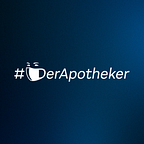What actually is the placebo effect?
4 min readJul 10, 2023
Everything that we take and from which we expect a certain medicinal effect has a placebo effect.
This can be beautifully observed, for example, by taking valerian tablets: Valerian is taken half an hour before bedtime and is supposed to support both falling asleep and sleeping through the night.
But what many do not know: The tablets must be taken every day, because the…
